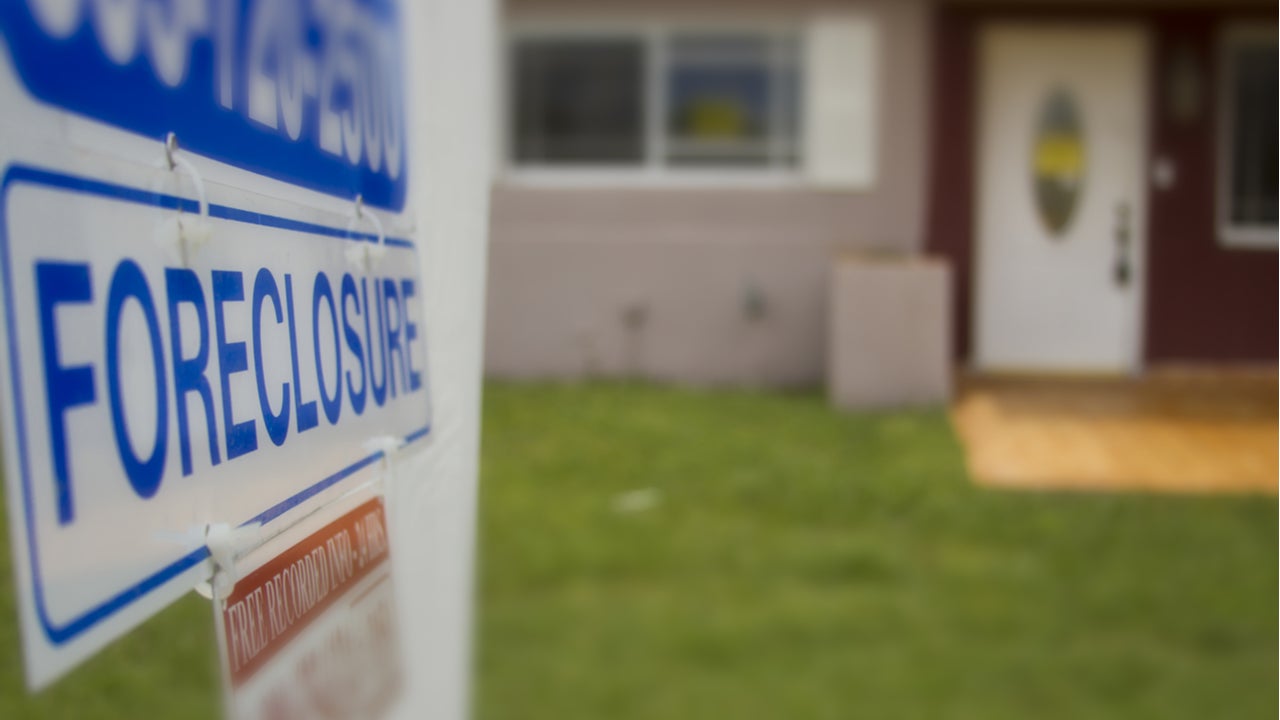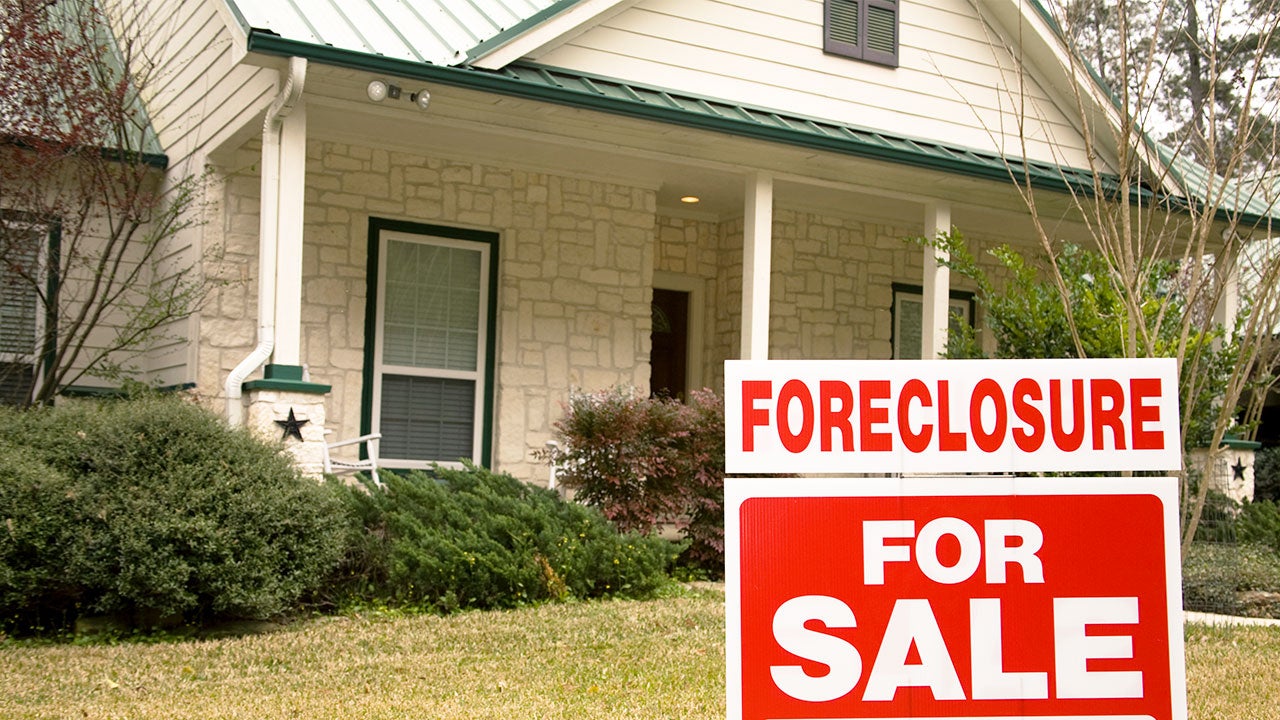Missing mortgage payments: How many can I miss before foreclosure?

Key takeaways
- If you miss a mortgage payment, most lenders offer a 15-day grace period, during which you can pay without penalty.
- Typically, lenders don’t start the foreclosure process until you’ve missed four mortgage payments in a row or are 120 days late on payments.
- If you’re having trouble paying your mortgage, contact your lender immediately to discuss your options.
A mortgage is an agreement in which the lender gives you a large sum for a home purchase, and you agree to repay the loan over time through monthly mortgage payments. However, despite your best intentions, you might miss a mortgage payment — whether it just slips your mind or you’re facing financial difficulty.
Being a little late with a mortgage payment is usually no big deal, but missing one entirely has consequences — and if you miss more than one, those consequences become more severe. Here’s what to expect.
What happens if I miss a mortgage payment?
If you make a late mortgage payment, don’t panic. Most lenders offer a 15-day grace period during which you can pay without incurring penalty fees.
After the 15-day mark, though, your lender may send a letter warning you of potential actions it might take if you continue not to pay. You’ll also start incurring late payment fees at this point — usually a percentage of your monthly mortgage payment. For example, if your monthly mortgage payment is $2,200, a 5 percent late fee equals $110.
If you believe you’ll miss a mortgage payment or already have, contact your lender or servicer as soon as possible to discuss loss mitigation options. Your lender may offer you a forbearance or loan modification to help you through the hardship.
How many mortgage payments can I miss before foreclosure?
Typically, foreclosure proceedings begin after you miss four consecutive mortgage payments — or are 120 days delinquent — without working out a solution with your lender, but the timing varies by your municipality, the housing market and your lender.
You’ll have a lot of notice that your lender intends to initiate foreclosure — and generally, your lender would prefer you don’t default on your loan. Most will willingly work with borrowers, even those who have missed several payments, to avoid foreclosure.
In 2024, foreclosure actions were reported on 322,103 U.S. properties, according to ATTOM Data Solutions.
The foreclosure timeline
- You miss a mortgage payment (and the grace period): If your mortgage is past 15 days due, you’ll incur late fees, and your lender will likely contact you about the missed payment.
- You receive a notice of default: After 90 days of missed payments, expect your lender to file an official notice of default and a lis pendens. A lis pendens puts the “world on notice” that a lawsuit relating to your property may be pending. Depending on the state where you live, copies may be sent by certified mail or even tacked to your front door. They’ll also be filed with your local recorder’s office.
- Your home goes into preforeclosure: The third stage happens after you receive your notice of default but before your home is auctioned off (sold) in a foreclosure sale. When you’re in preforeclosure, paying everything you owe, including any interest, late penalties and fees, can bring your mortgage current. Each state has its own timeline for this part of the process. If you can prove financial hardship, your lender may waive penalty fees or offer another arrangement.
- Your lender sets a notice of sale: After 120 days of delinquency, your lender will file a notice of sale, including a set date and time for an auction on your home. This information may be published in newspapers and posted on public buildings, such as a courthouse. If you can bring the mortgage current and repay all the incurred fees before the auction date, you may be able to reclaim your home via the “right of redemption.”
- Your household is evicted: After your home is auctioned, you are required by law to vacate the property. The buyer will likely dictate how much time you have to pack your things, which might only be a few days. If you refuse to adhere to an eviction notice, law enforcement is legally mandated to remove you, your family and your belongings from the home. Your lender or the buyer may agree to a “cash for keys” situation, in which they pay you a small amount to move.
Factors that impact the foreclosure timeline
Your foreclosure timeline depends on several factors, including the laws and regulations in your state, your lender and sometimes the housing market.
Foreclosure differs by location
The foreclosure process differs by state. For example, some states allow a notice of default to be tacked on your front door. Other states have different rules about how the notice of sale is posted and shared with the public. The biggest difference is between states that have judicial and non-judicial foreclosure.
- Judicial: If you live in one of the 21 states with judicial foreclosure — including Florida, New York and Ohio — the lender must file a lawsuit before proceeding with foreclosure. This means foreclosures must move through state courts, and if those courts are backed up, the process can take much longer than 120 days. This may give you time to pay your debts or work out a solution with your lender.
- Non-judicial: In non-judicial states — including California and Texas — when the borrower goes into default, the lender can put the house up for auction without filing any legal paperwork or going to court. If a lender wants to foreclose on your home in a non-judicial state, it may happen sooner than the 120-day timeline, which is considered guidance, but is not a law.
Foreclosure differs by lender
Not all lenders follow the same timeline for foreclosing on a home. While most lenders will file a notice of default after 90 days, or three months of missed payments, others may wait longer or even send it to you sooner. Your mortgage terms outline what constitutes a default.
Foreclosure and housing markets
Housing markets may influence how quickly a lender decides to begin foreclosure proceedings. In a strong market, where an auctioned home will likely sell quickly, or in a municipality where the laws and the court docket favor the lender, the process may move much faster.
Mortgage lenders may be more relaxed in a weak housing market because it may be harder to sell the home. After all, most lenders would rather work with borrowers to remedy the situation instead of needing to seize and then sell the home.
How can a payment plan help if I miss a mortgage payment?
Setting up a payment plan with your lender can help you catch up on late payments over a fixed timeline. This option may work best when missed payments are due to a short-lived financial difficulty versus a long-term hardship.
Most payment plans last anywhere from two to six months, and during that time, your monthly payments increase to compensate for the overdue balance. Following this arrangement can help you avoid foreclosure.
Other steps to take if you fall behind on your mortgage
If you’re unable to get your mortgage balance back in good standing using a payment plan, speak to your lender about other options, including:
- Mortgage forbearance: This option helps homeowners stay out of foreclosure by temporarily reducing mortgage payments or pausing them altogether during a short-term setback. If you qualify for mortgage forbearance, you must show evidence of your financial hardship. Keep in mind you will still need to repay what you owe when the forbearance period ends.
- Loan modification: A loan modification permanently changes your current mortgage by lowering the interest rate or lengthening the term so that you can afford to make payments. You’ll need to provide proof of a significant financial hardship and gain approval from your lender to go this route.
- Short sale: A short sale is the act of selling a property for less than what’s owed on your mortgage with permission from your lender. The lender takes the proceeds and may forgive the difference. You must establish financial hardship to qualify.
- Deed in lieu of foreclosure: A deed in lieu of foreclosure is the legal process of giving your lender the deed to your home. In return, the lender will release you of your mortgage debt. It may stay on your credit report for four years, and you will be required to vacate your home. Not all lenders will agree to this option.
FAQ
Why we ask for feedback Your feedback helps us improve our content and services. It takes less than a minute to complete.
Your responses are anonymous and will only be used for improving our website.







